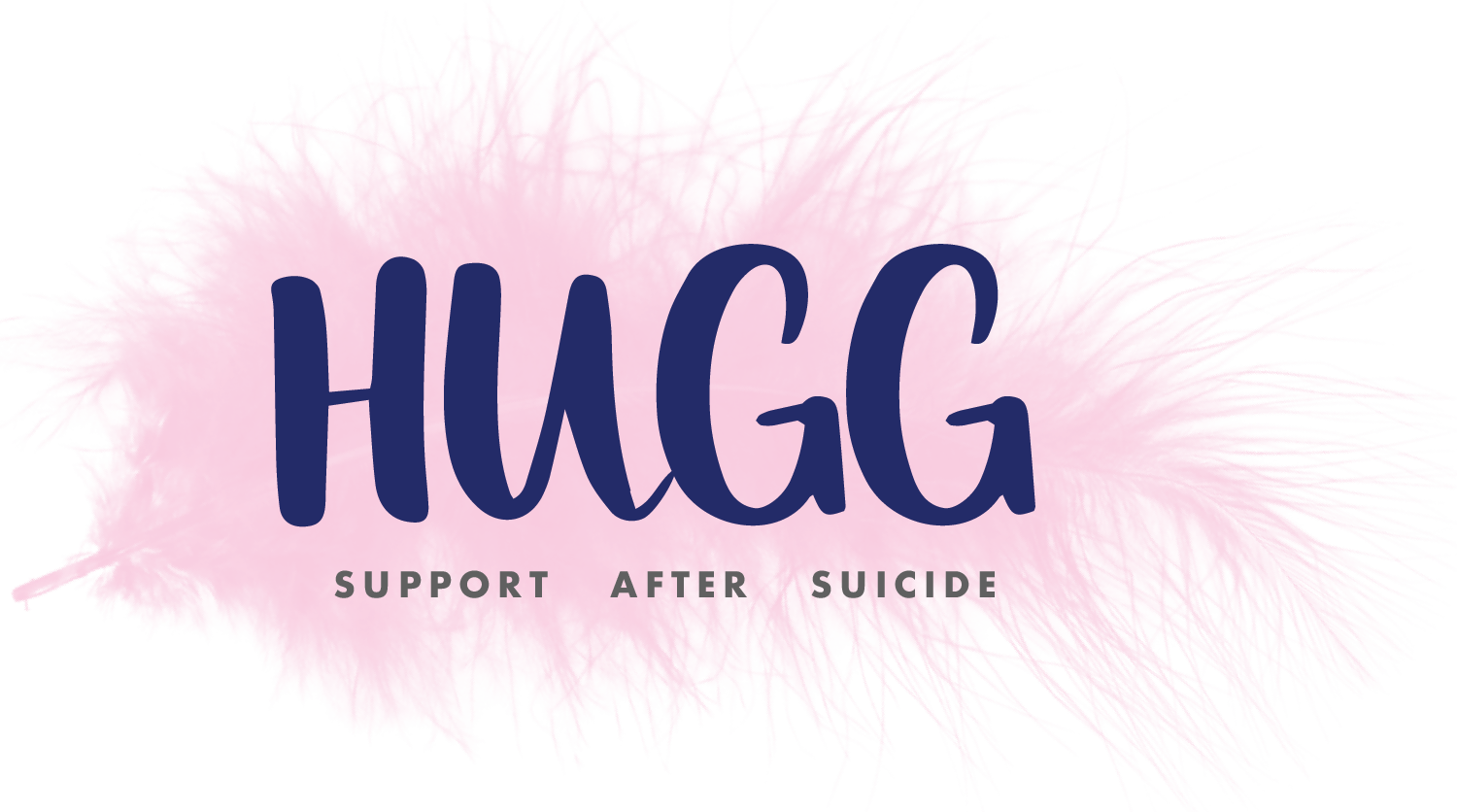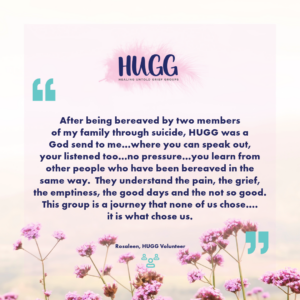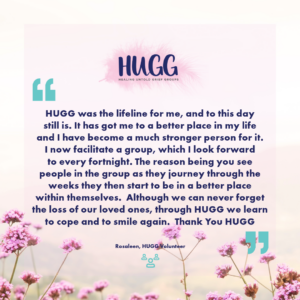When someone dies by suicide, the impact is immense. We once heard someone say it’s like a bomb going off and you are left picking up the shrapnel.
It is also well recognised that suicide bereavement is associated with a host of negative outcomes
These include long-lasting negative psychological effects including depression, anxiety, suicidal ideation and suicide attempts.
Recent research also suggests that those who are bereaved by suicide are at an increased risk of developing complicated grief reactions and prolonged grief disorder (Guldin et al., 2017). Additionally, individuals bereaved by suicide are more likely to experience feelings of stigma and shame than those bereaved by other causes (Pitman et al., 2016). There is also accumulating evidence that those bereaved by suicide are more prone to several adverse physical health outcomes, including an increased risk of physical illness, cardiovascular disease, hypertension, and
diabetes (Spillane et al., 2017).
To read this can be very upsetting and worrying for anyone bereaved by suicide.
And still, there is hope after suicide
Given these negative outcomes and the number of people exposed to suicide, developing a clear understanding of the supports and dynamics that may help people who have lost a loved one to suicide is of great importance. Thanks to HUGG volunteer and University College Dublin, student Mark Creegan, along with UCC researchers and the National Suicide Research Foundation they have explored the potential for growth in the aftermath of such a loss.
Post Traumatic Growth refers to positive psychological changes that can occur in the aftermath of a highly challenging, stressful and traumatic life event (Tedeschi & Calhoun, 1996). It is not simply a return to baseline levels of functioning. Rather, it is an experience of personal growth resulting in a higher level of adaptive functioning than what was present before the event (Tedeschi & Calhoun, 2004).
This report is a secondary analysis of Afterwords, a national survey of people bereaved by suicide in Ireland
The findings support previous research that post-traumatic growth is possible for those bereaved by suicide, including those who have suffered multiple losses.
- Women are more likely to exhibit post-traumatic growth than Men (differing social supports/communication)
- Relationship to those who died is not a factor in post-traumatic growth
- Having Social support (which includes peer groups) and having space to talk about suicide is a factor in post-traumatic growth
- Those who are more than 10 years on from their bereavement most likely to have post-traumatic growth
This publication underlines the importance of HUGG’s work in facilitating post-traumatic growth and underlines the HUGG message that Hope and Healing after suicide is possible.
If you are bereaved by suicide, we believe you can move forward in your grief. It doesn’t happen quickly in 5 stages and the grief doesn’t shrink, but over time you can learn to grow around your grief. The team at HUGG, all our volunteers and the people who attend our support groups are living proof that it is possible.
If you want to read the full report please click on the link: Exploring-post-traumatic-growth-in-individuals-bereaved-by-suicide-Afterwords-secondary-analysis
If you want to join a HUGG suicide bereavement support group, please fill out the form on our website and we will call you back. You will be speaking with someone who is bereaved.
Before you finish reading this article, please see the quote below from Rosaleen, who attended a HUGG suicide bereavement support group and is now a volunteer. Her lived experience validates again, that post-traumatic growth is possible.
Go gently.
When someone dies by suicide, the impact is immense. We once heard someone say it’s like a bomb going off and you are left picking up the shrapnel.
It is also well recognised that suicide bereavement is associated with a host of negative outcomes
These include long-lasting negative psychological effects including depression, anxiety, suicidal ideation and suicide attempts.
Recent research also suggests that those who are bereaved by suicide are at an increased risk of developing complicated grief reactions and prolonged grief disorder (Guldin et al., 2017). Additionally, individuals bereaved by suicide are more likely to experience feelings of stigma and shame than those bereaved by other causes (Pitman et al., 2016). There is also accumulating evidence that those bereaved by suicide are more prone to several adverse physical health outcomes, including an increased risk of physical illness, cardiovascular disease, hypertension, and
diabetes (Spillane et al., 2017).
To read this can be very upsetting and worrying for anyone bereaved by suicide.
And still, there is hope after suicide
Given these negative outcomes and the number of people exposed to suicide, developing a clear understanding of the supports and dynamics that may help people who have lost a loved one to suicide is of great importance. Thanks to HUGG volunteer and University College Dublin, student Mark Creegan, along with UCC researchers and the National Suicide Research Foundation they have explored the potential for growth in the aftermath of such a loss.
Post Traumatic Growth refers to positive psychological changes that can occur in the aftermath of a highly challenging, stressful and traumatic life event (Tedeschi & Calhoun, 1996). It is not simply a return to baseline levels of functioning. Rather, it is an experience of personal growth resulting in a higher level of adaptive functioning than what was present before the event (Tedeschi & Calhoun, 2004).
This report is a secondary analysis of Afterwords, a national survey of people bereaved by suicide in Ireland
The findings support previous research that post-traumatic growth is possible for those bereaved by suicide, including those who have suffered multiple losses.
- Women are more likely to exhibit post-traumatic growth than Men (differing social supports/communication)
- Relationship to those who died is not a factor in post-traumatic growth
- Having Social support (which includes peer groups) and having space to talk about suicide is a factor in post-traumatic growth
- Those who are more than 10 years on from their bereavement most likely to have post-traumatic growth
This publication underlines the importance of HUGG’s work in facilitating post-traumatic growth and underlines the HUGG message that Hope and Healing after suicide is possible.
If you are bereaved by suicide, we believe you can move forward in your grief. It doesn’t happen quickly in 5 stages and the grief doesn’t shrink, but over time you can learn to grow around your grief. The team at HUGG, all our volunteers and the people who attend our support groups are living proof that it is possible.
If you want to read the full report please click on the link: Exploring-post-traumatic-growth-in-individuals-bereaved-by-suicide-Afterwords-secondary-analysis
If you want to join a HUGG suicide bereavement support group, please fill out the form on our website and we will call you back. You will be speaking with someone who is bereaved.
Before you finish reading this article, please see the quote below from Rosaleen, who attended a HUGG suicide bereavement support group and is now a volunteer. Her lived experience validates again, that post-traumatic growth is possible.
Go gently.







